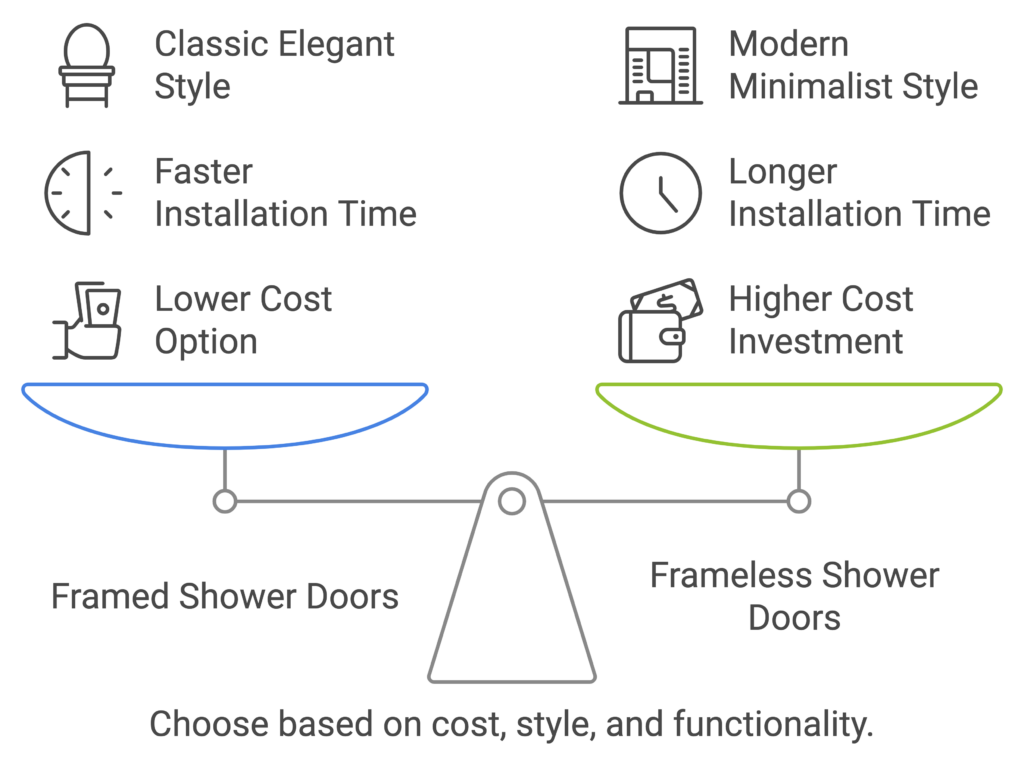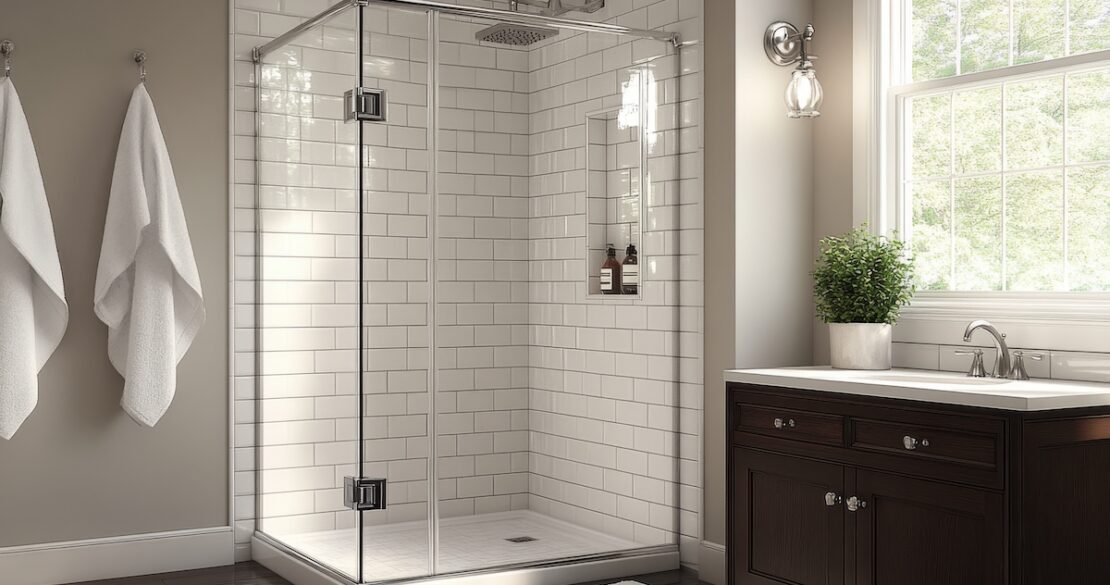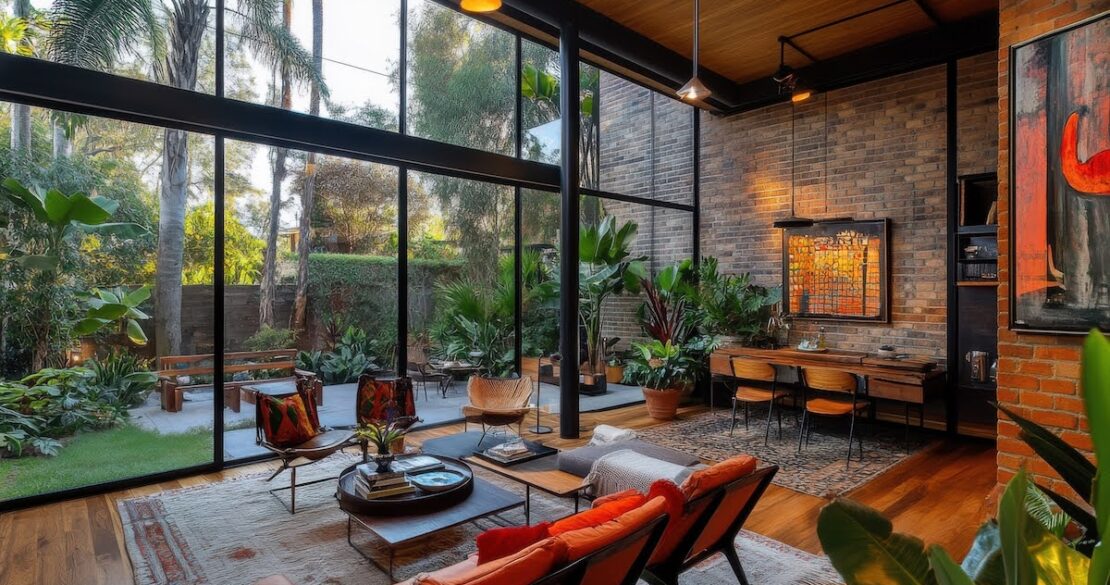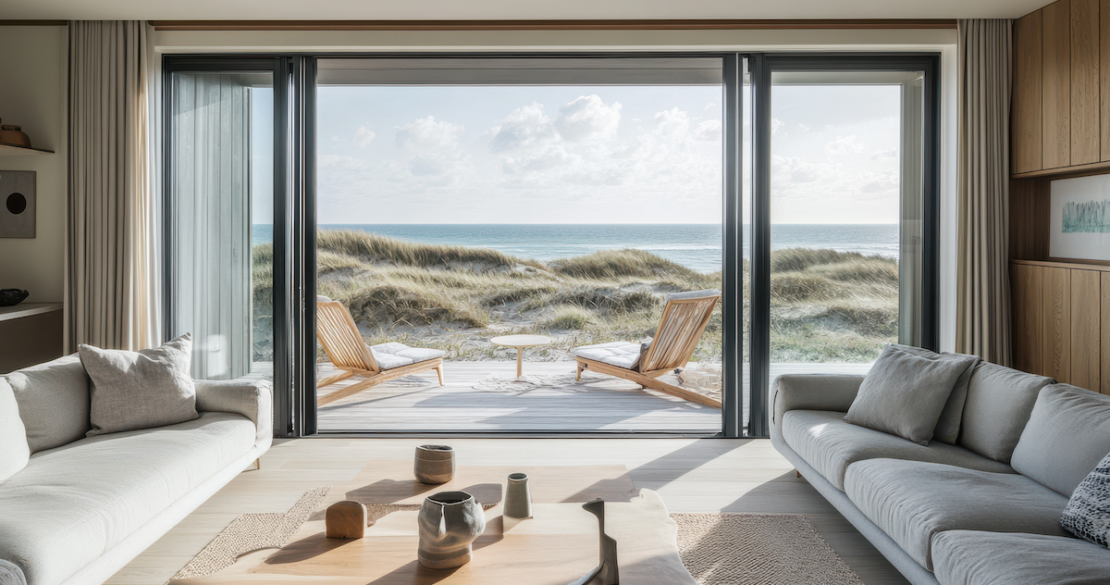When upgrading your bathroom, choosing the right shower door is a big decision—one that can set the style, affect your cleaning routine, and even impact your budget.
Two popular options, framed and frameless shower doors, each offer unique advantages.
Today, we’ll guide you through the pros, cons, and key details you need to know to make the best choice for your space.
What Are Framed and Frameless Shower Doors?
Before diving into the details, let’s clarify what each type of shower door entails.
Framed Shower Doors
Framed shower doors have a metal frame that surrounds the edges of the glass, providing additional stability and support.
These doors often use thinner glass, as the frame supports the weight. The frames can be made from materials like aluminum, brass, or chrome and are available in finishes to match your bathroom decor.
Frameless Shower Doors
Frameless shower doors, as the name suggests, lack the supporting metal frame.
Instead, they rely on thicker glass (typically 3/8 to 1/2 inch) and sturdy hardware to stay secure. This design choice offers a sleek, modern look that many homeowners find appealing, as it creates a more open and airy feel.

Cost Comparison: Framed vs. Frameless Shower Doors
One of the first considerations for most buyers is the cost.
Here’s a quick breakdown:
Type | Average Cost (Including Installation) | Notes |
|---|---|---|
Framed Shower Doors | $300 to $500 | Budget-friendly, often with a classic appearance |
Frameless Shower Doors | $600 to $1,200 | Higher cost, with a modern, minimalistic look |
Factors Impacting Cost:
- Glass Thickness: Frameless doors require thicker glass, increasing material costs.
- Installation Complexity: Frameless doors need precise alignment, adding to labor costs.
- Customization Options: Additional design choices can add to the overall expense.
If budget is a significant factor, framed doors may be the best option.
However, for those seeking a clean, modern aesthetic, frameless doors are often worth the investment.
Installation: How Long Does Each Type Take?
The installation time can vary based on the type of door you choose.
Here’s a comparison of average installation times:
Type | Installation Time (Approximate) |
|---|---|
Framed Shower Doors | 2 hours |
Frameless Shower Doors | 4 hours |
Framed doors, supported by a metal frame, are quicker to install and can be handled by most professional installers.
Frameless doors, however, require careful alignment and precise measurements, as the thicker glass is heavier and needs to be perfectly positioned for both safety and functionality.
Key Style Differences: Traditional vs. Modern Aesthetics
Both framed and frameless shower doors can fit various design styles, but they tend to lend themselves to different aesthetics.
Framed Shower Doors: Classic Elegance
Framed doors offer a traditional look, especially when finished with materials like chrome, brass, or brushed nickel.
The visible metal frame can add a touch of elegance that suits classic and transitional bathroom styles. This design may feel more substantial, with the metal frame creating defined lines around the glass.
Frameless Shower Doors: Modern Minimalism
Frameless doors provide an uninterrupted view of the shower, enhancing the sense of space and light.
The minimalistic design complements contemporary and modern bathrooms well. Without a frame, these doors give a sleek, streamlined look that highlights other design elements, such as tiling or shower fixtures.
Explore more about bathroom glass options at Atlantic Glass.
Maintenance: Which Type is Easier to Clean?
The maintenance requirements differ based on the presence or absence of a frame.
Framed Shower Doors:
With framed doors, water and soap scum can accumulate around the frame, potentially leading to corrosion over time.
The metal frame requires regular cleaning to prevent rust or mold buildup.
Frameless Shower Doors:
Frameless doors are easier to clean because they lack the frame, reducing areas where dirt and mold can accumulate.
Simply using a squeegee after each shower can keep them looking pristine.
Atlantic Glass provides tips for shower door maintenance.
Water Leakage: Framed or Frameless?
Water leakage is another important factor.
Framed Shower Doors:
The frame offers a tight seal, which effectively keeps water contained within the shower area. This feature is ideal for bathrooms prone to splashing or if your shower pressure is high.
Frameless Shower Doors:
Frameless doors lack the sealing provided by a frame, so there’s a slight risk of water leakage if not installed correctly.
This issue can be minimized by ensuring high-quality seals and precise installation.
Customization and Design Flexibility
Customization is another major point of difference between the two types of doors.
Framed Shower Doors:
Typically come in standard sizes and shapes, with limited customization options.
However, you can still choose finishes and glass styles (e.g., frosted or textured glass) to match your design preferences.
Frameless Shower Doors:
Offer greater flexibility.
They can be tailored to fit nearly any bathroom layout, allowing you to work with more unique shower configurations and non-standard dimensions. Additionally, frameless doors can feature different glass finishes, such as frosted, tinted, or low-iron glass for enhanced clarity.
Learn more about custom glass services at Atlantic Glass.
Glass Thickness and Safety
Glass Thickness:
Framed doors use thinner glass (typically around 1/4 inch), supported by the frame.
In contrast, frameless doors need thicker glass (3/8 to 1/2 inch) for durability without the frame.
Safety Glass:
Both types use tempered safety glass, designed to break into small, rounded pieces if shattered.
This feature makes both framed and frameless options safe, though thicker glass in frameless doors offers added stability.
Pros and Cons at a Glance
Framed Shower Doors
Pros | Cons |
|---|---|
Lower cost | Metal frame can collect water and grime |
Faster installation | Limited design flexibility |
Better water containment | May feel less modern |
Frameless Shower Doors
Pros | Cons |
|---|---|
Modern, open look | Higher cost |
Easier to clean | Longer installation time |
Customizable for unique shower layouts | Potential for water leakage without proper seals |
Choosing Based on Bathroom Type
Consider your bathroom’s design and layout to help choose between framed and frameless doors.
- Small Bathrooms
Frameless doors create an open, spacious feel, ideal for smaller bathrooms where every inch counts. - Traditional Bathrooms
If your bathroom has a classic look, framed doors might complement it better, adding structure and elegance. - Modern Bathrooms
Frameless doors, with their clean lines, are perfect for modern and minimalist designs. - High-Use Bathrooms
For family or guest bathrooms, framed doors may be more practical due to their tight water containment and easier installation.
Enhancing Your Shower’s Look with Glass Options
Atlantic Glass offers various glass options to enhance your shower:
- Clear Glass for a crisp, open look
- Frosted Glass for privacy
- Patterned Glass for texture and visual interest
- Low-Iron Glass for crystal-clear visibility without green tint
Explore glass options for your bathroom.
Common Questions (FAQs)
- How thick is the glass for each type?
Framed doors generally use 1/4-inch glass, while frameless doors need 3/8 to 1/2 inch for stability. - Is one type more durable than the other?
Both types are durable, but frameless doors use thicker glass for added stability. - How do I prevent water spots on a frameless door?
Using a squeegee after each shower can help keep frameless doors spotless. - Can I replace framed doors with frameless ones?
Yes, but you may need professional help for installation due to the added weight and alignment precision.
See more FAQs about Atlantic Glass services.
Final Thoughts: Making the Right Choice
When it comes to deciding between framed and frameless shower doors, there’s no one-size-fits-all answer.
Your choice will depend on your budget, aesthetic preferences, and maintenance expectations.
Here’s a quick recap:
- Choose Framed Doors If: You’re looking for a budget-friendly option with a classic appearance that’s easy to install.
- Choose Frameless Doors If: You want a modern look, easier cleaning, and customization options, and you’re willing to invest a bit more.
For those considering an upgrade, check out Atlantic Glass’s gallery of completed projects to see examples of both framed and frameless installations.





